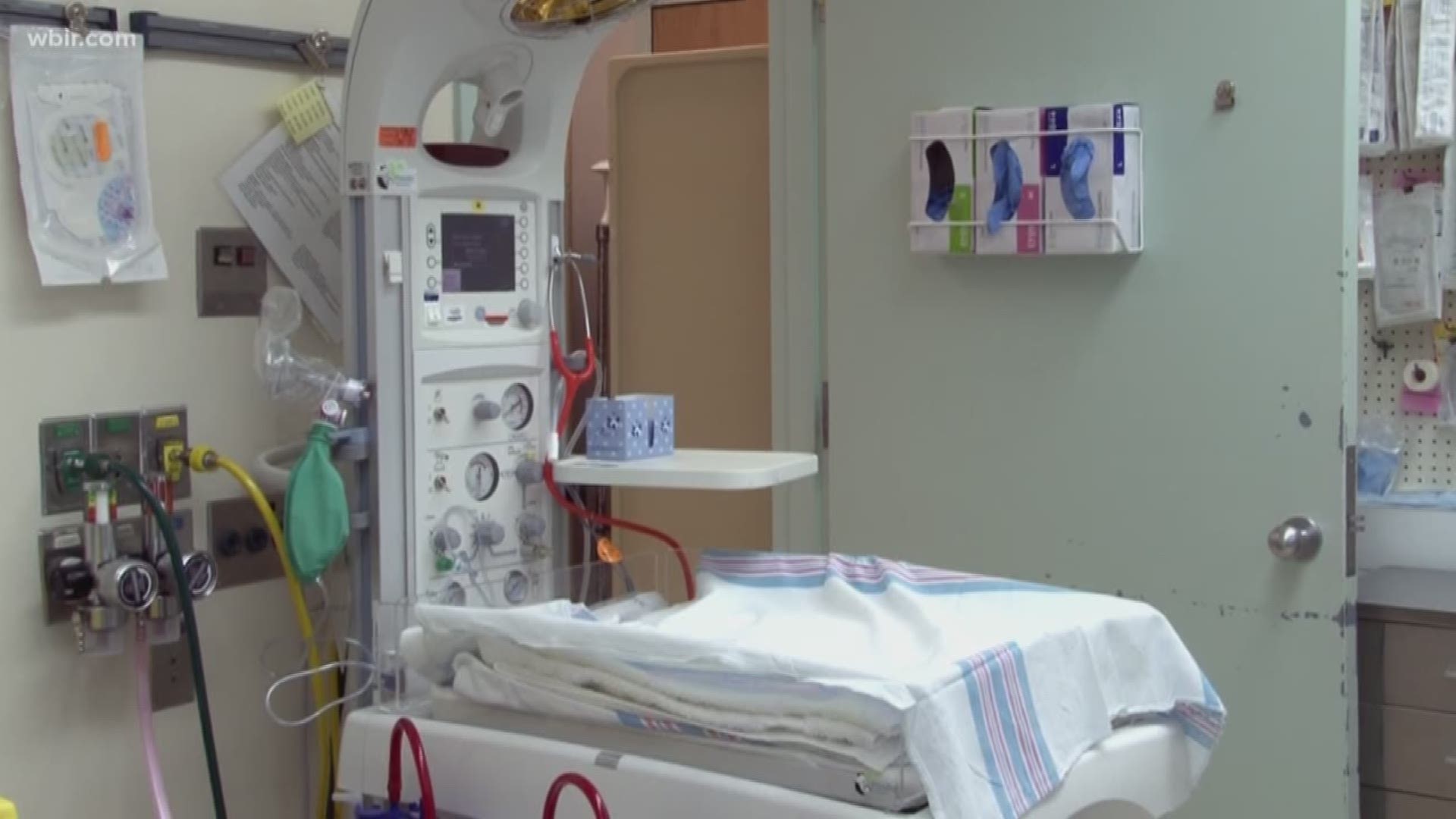Knoxville — 50,000 women in the U.S. almost die each year due to pregnancy-related complications.
And every year, 800 mothers don't survive.
Maternal mortality is dropping dramatically around the globe, except in the U.S. where the rate is rising, according to the CDC Foundation.
But many of these deaths are preventable.
Hemorrhage charts inside several operating rooms at UT Medical Center in Knoxville map the steps to keep a patient from bleeding out during delivery.
The charts are one of several new protocols put into place at the hospital to save mothers' lives.
"It reminds us, this is the list. This is what we've done. Here are some other ideas," Dr. Kimberly Fortner, the Director of Obstetrics at UTMC, said.
Dr. Fortner explained it's steps like these that emphasize taking care of the mother is just as important as looking after the newborn during a pregnancy.
"We could all scream from the rooftops, 'Please! The mother is not an incubator.' We must remember that the mother matters," Dr. Fortner said.
From 2013 to August 2018, no maternal deaths out of more than 18,000 live births were reported at UTMC.
10News asked for data going back ten years, but the hospital declined, citing patient privacy.
The number of mothers dying across the U.S. during or after childbirth is staggering.
In Tennessee, 370 women in Tennessee died from pregnancy-related causes and complications from 2012 to 2016, according to the Tennessee Department of Health.
Since 2016, that number increased 21 percent.
And it is affecting black women at astonishing proportions.
Black women in Tennessee are dying at two to four times the rate of white women.
"I think as we share more data and understand details, we can begin to find answers to real questions like, 'Is there a healthcare disparity? Yes, probably.' If so, what's it coming from and how do we address it?" Dr. Fortner said.
There is no national tracking system for childbirth complications, but some states are now taking matters into their own hands.
Tennessee passed legislation in 2016 to establish a maternal mortality review board to investigate how and why women are dying from pregnancy-related causes and complications.
Medical professionals say there are a number of contributing factors, some not directly related to pregnancy.
"It's multi-factorial, and there's not one solution," Dr. Morgan McDonald, the assistant commissioner at the state health department, said. "It takes multiple partners in multiple sectors to really gather around and partner to fix this for our state."
The review committee is made up of members across Tennessee, each with different professional, racial and geographical backgrounds.
"We were quite intentional to make sure that we have multiple perspectives as we're reviewing each case," Dr. McDonald said.
There is not yet enough data to determine how and why moms are dying during and after childbirth in Tennessee.
Tennessee's Maternal Mortality Review committee meets again in December.
Members hope to have specific data on maternal deaths at the beginning of 2019.
Other organizations like The American College of Obstetricians and Gynecologists and the Tennessee Initiative for Perinatal Quality Care are now taking similar initiatives to address maternal deaths across the state.
"We're really trying to get the word out to hospitals to be able to engage in very measurable projects and bundles that they can implement that we hope will impact quality care," Dr. McDonald said.
Ultimately, though, it is up to hospitals to decide to take these life-saving actions.

